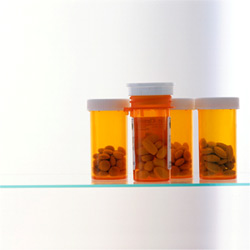Spending on Genetic-Drug Interaction Tests for Antidepressant Choice? Think Twice
Have you heard of a medical test for the selection of antidepressants? It’s billed as a simple blood test or cheek swab that can indicate what antidepressant you should or should not take. This is advertised as “personalized medicine” or “precision medicine.” And to anyone who has been on the (un)merry-go-round of antidepressant trials, it sure sounds like a great idea. Here’s the latest research on what you need to know about spending money on medical tests for antidepressant selection.
Read More













Recent Comments